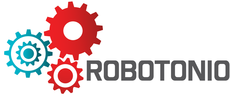Our Philosophy
Every year, we create new educational programmes, use new educational tools, use technology, and adapt our lessons to specific standards. Each of our choices revolves around three components that make up our philosophy.
Computers today are everywhere. In a few years, even in our country, even our refrigerators will be supported by computers. The "Internet of Things" has already conquered the market. The most significant international investments are being made in artificial intelligence. European programmes give a premium to start-ups in robotics and new technologies. New technologies such as quantum processors, which will move from research to the marketplace in a few years, will push the potential of computers to levels we cannot even imagine today.
If we exclude all of this world from the world of education, how easy will it be for our children to adapt tomorrow as professionals in such a fast-evolving environment? The first component that makes up our philosophy tries to do just that: through our programmes to demystify the field of technology, to make children understand that they are part of this evolution, and thus to bring their education into line with the social reality as it is shaped by the evolution of science and technology.
Participation - Cooperation - Fun is the triptych of the second component of our philosophy. Our lessons are designed so that play motivates involvement, knowledge and collaboration to help us have fun in the classroom. Autonomous vehicles that park themselves, dinosaurs that race, SUMO wrestling robots, funny and creative computer games, mathematical puzzles, and models of smart houses, each educational program has its own ways of sparking students' interest and leaving the classroom a winner in every aspect, whether we refer to knowledge or play.
The third pillar that makes up our philosophy is the standardization and documentation of our programs. To ensure and enhance the value of our educational work, we have adapted our programs to internationally recognized academic standards, mainly from the American area, where millions of dollars are invested annually in the STEAM education sector. At the same time, we have secured partnerships with internationally recognized institutions that will certify our students themselves.
When our students move through the visual programming stage, our courses adapt entirely to the text-based programming language Python. Robotics with EV3, programming for computer game development, and the Internet of Things are all adapted to be supported with this language. The reason is that our students following a related program can take an exam to be certified by the Python Institute* regarding their programming knowledge.
**Python is one of the world's most popular programming languages, adopted and adapted for all scientific and professional disciplines, from financial services and medicine to digital games. The goal of the Python Institute is to provide every developer and aspiring Python programmer with the skills needed to cope at a more advanced and professional level, following best practices in programming.
Participation - Cooperation - Fun is the triptych of the second component of our philosophy. Our lessons are designed so that play motivates involvement, knowledge and collaboration to help us have fun in the classroom. Autonomous vehicles that park themselves, dinosaurs that race, SUMO wrestling robots, funny and creative computer games, mathematical puzzles, and models of smart houses, each educational program has its own ways of sparking students' interest and leaving the classroom a winner in every aspect, whether we refer to knowledge or play.
The third pillar that makes up our philosophy is the standardization and documentation of our programs. To ensure and enhance the value of our educational work, we have adapted our programs to internationally recognized academic standards, mainly from the American area, where millions of dollars are invested annually in the STEAM education sector. At the same time, we have secured partnerships with internationally recognized institutions that will certify our students themselves.
When our students move through the visual programming stage, our courses adapt entirely to the text-based programming language Python. Robotics with EV3, programming for computer game development, and the Internet of Things are all adapted to be supported with this language. The reason is that our students following a related program can take an exam to be certified by the Python Institute* regarding their programming knowledge.
**Python is one of the world's most popular programming languages, adopted and adapted for all scientific and professional disciplines, from financial services and medicine to digital games. The goal of the Python Institute is to provide every developer and aspiring Python programmer with the skills needed to cope at a more advanced and professional level, following best practices in programming.
